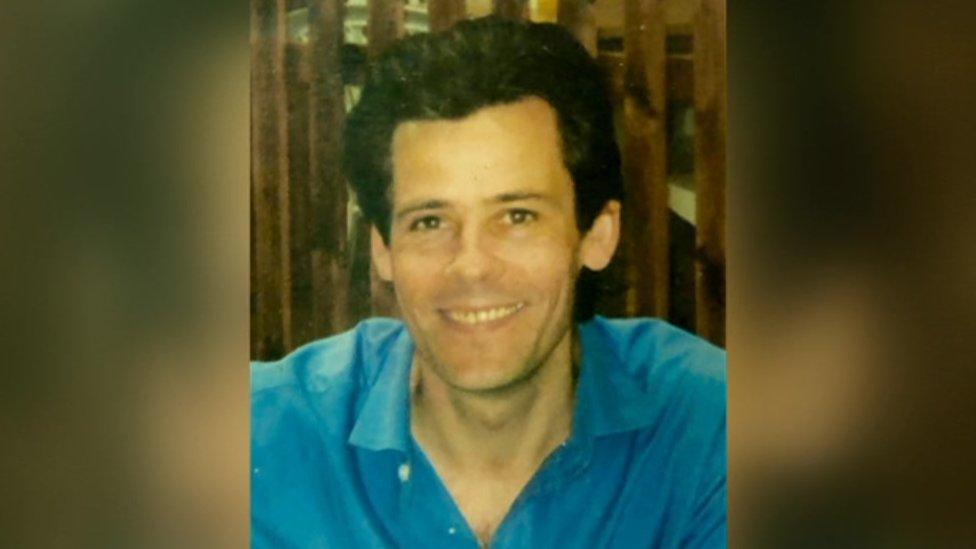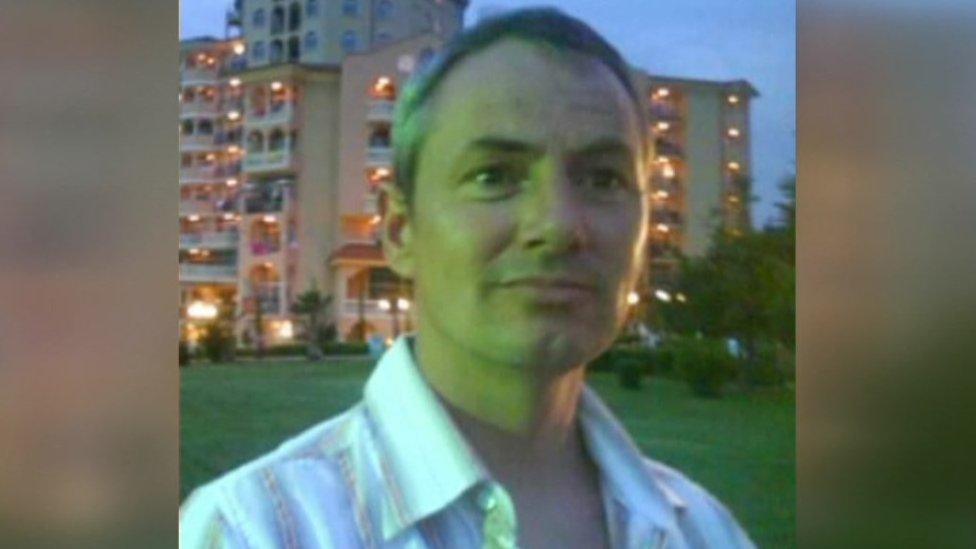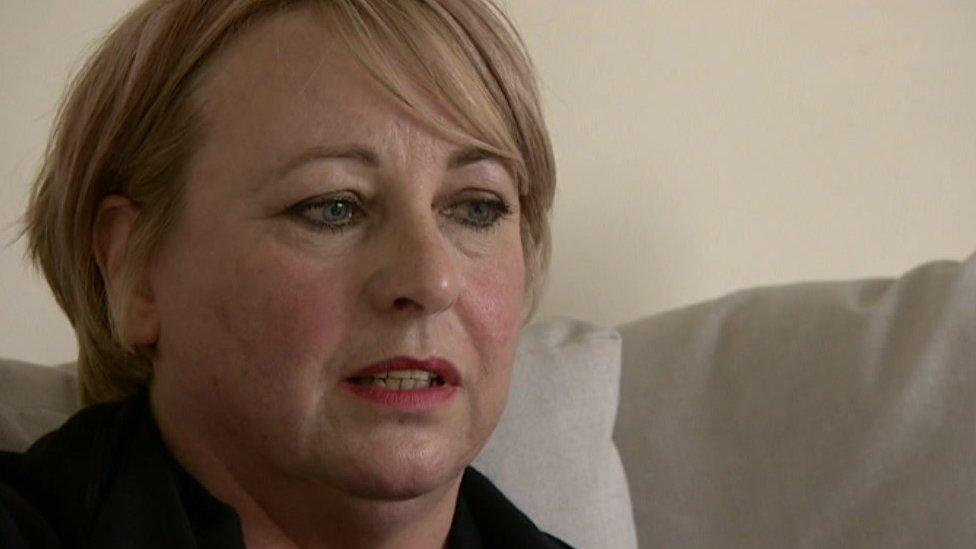Inquiry call over 'preventable' deaths at Birmingham and Solihull trust
- Published

Michael Wheeler died in July 2018 just hours after being sent home from Queen Elizabeth Hospital
An MP has called for an inquiry into 11 "preventable" deaths involving a mental health trust.
Edgbaston Labour MP Preet Gill said lessons had "not been learned" at Birmingham and Solihull Mental Health NHS Foundation Trust after it found the deaths were "probably avoidable".
The trust said improvements were needed around risk assessments, care plans and communication.
It added it had carried out "robust root cause analysis" after each death.
Eight of the deaths occurred in 2017-18 and three in 2018-19.

Marlon Demaine's family said they had called an ambulance because the 50-year-old threatened to take his own life
Michael Wheeler died in July 2018 hours after being sent home by a mental health nurse at the Queen Elizabeth Hospital.
As he left the hospital, he tried to jump in front of a car and later took his own life before another assessment was due to take place, his family said.
'Complex and varied'
His brother, Dave Wheeler, said: "There was no reason at all that Mike could not have been saved from his own actions and I will go to my deathbed with that."
The trust said there were "complex and varied" reasons why individuals take their own lives and it was "always possible to learn from such tragic incidents".
A year earlier, Marlon Demaine's family called an ambulance after they said the 50-year-old threatened to kill himself.
He was taken to Heartlands Hospital, seen by mental health staff and sent home, his family said.
The following day, his family said they asked for him to be readmitted, but he took his own life two hours after he was assessed.

Jessica Reinold said she was "very sad" nothing had changed
His ex-wife, Jessica Reinold, said she was "very sad" nothing had changed since she was told by the investigation team "lessons will be learned from this".
Low number of beds
The trust said NHS data showed it had one of the lowest number of beds per 100,000 population and amongst the highest levels of occupied beds by patients with complex needs.
It added there had also been an increase in demand against constraints on public funds and under investment over many years.
The trust said there were "some emerging themes" it needed to act on "to ensure that we learn from these cases in the future".
It said these included "family and carer involvement and engagement, increased use of longitudinal risk assessment and increased recognition of suicidal risk factors when conducting risk assessments, care plans and crisis plans".
Cancelled appointments
Other issues identified included a "lack of professional curiosity in risk assessment, gaps in service due to communication in interagency working, involving family and carers in the assessment process, involving medics at an earlier point and access to out of hours medics, and the management of cancelled appointments".
It added it was working on improving these areas as part of its goals for the year.
Birmingham Coroner's service said it had written to the trust citing concerns over beds and funding.
Paul Jennings, of Birmingham and Solihull Clinical Commissioning Group, which distributes funding, said: "I know people have raised issues about funding in general and staffing levels, but we don't have evidence to suggest that's the case."
Calling for a full investigation and inquiry, Ms Gill said: "This is not the first time and no doubt it will not be the last because lessons are not being learned. That's my main concern."
If you or someone you know has been affected by a mental health issue, help and support is available via BBC Action Line.

Follow BBC West Midlands on Facebook, external, on Twitter, external, and sign up for local news updates direct to your phone., external